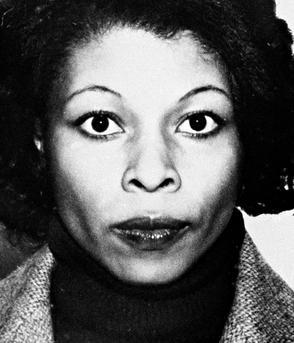In a significant development that reverberates through the realms of law enforcement and civil rights, Assata Shakur, a prominent figure in the Black liberation movement and a fugitive on the FBI’s Most Wanted Terrorists list, has reportedly passed away in Cuba. Shakur, who was implicated in the 1973 murder of New Jersey State Trooper Werner Foerster during a notorious highway shootout, resurfaced in the public consciousness over the years as a contentious symbol of resistance and a polarizing figure in American history. Her flight from justice and subsequent asylum in Cuba have long sparked debates about race, justice, and political exile, making her a steadfast topic of discussion among activists and historians alike. This article examines Shakur’s legacy, the implications of her life and death, and the ongoing dialogues surrounding her controversial status in the context of American law enforcement and civil rights activism.
Assata Shakur’s Legacy and the Impact of Her Exile on U.S.-Cuban Relations
Assata Shakur’s life and her long-standing exile in Cuba represent a complex intersection of race, justice, and international politics. As a prominent figure within the Black Liberation Army, Shakur became a symbol of resistance against systemic oppression, facing accusations linked to the murder of New Jersey state trooper Werner Foerster in 1973. Her flight to Cuba not only secured her safety but also highlighted the ideological clash between the United States and Cuba, particularly during the Cold War era. As one of the first women to be placed on the FBI’s Most Wanted list, her case ignited discussions on police violence, racial inequalities, and the role of political prisoners in American society.
The implications of Shakur’s presence in Cuba have rippled through U.S.-Cuban relations for decades. Her asylum was granted by the Cuban government, which has been perceived as an act of defiance against U.S. hegemony. This relationship has led to significant diplomatic strains, evidenced by the following points:
- Political Tensions: Shakur’s asylum has often been a sticking point in negotiations between the two nations.
- Symbol of Solidarity: Her case is viewed by many as a mark of Cuba’s solidarity with anti-colonial struggles around the world.
- Impact on Migration Policies: Discussions surrounding political exiles from Cuba often reference Shakur’s legacy.
Ultimately, Shakur’s exile encapsulates the broader narrative of resistance against oppression and the enduring complexities of U.S.-Cuban diplomacy. The reverberations of her story continue to challenge the historical narratives surrounding the fight for justice and equality, leaving an indelible mark on discussions about political asylum and human rights.
The Long Search for Justice: A Reflection on the 1973 Murder of New Jersey State Trooper
The legacy of Assata Shakur, the former Black Panther and activist who was sought by the FBI for the murder of New Jersey State Trooper Werner Foerster in 1973, continues to evoke deep emotions and polarized opinions across the United States. As the news of Shakur’s death in Cuba surfaces, it serves as a stark reminder of a tumultuous phase in American history marked by civil rights struggles, law enforcement confrontations, and ongoing debates about justice and redemption. Shakur’s story intertwines themes of activism and alleged criminality, bringing forth questions about race, political dissent, and the quest for justice that remain relevant today.
Over the decades, the pursuit of justice for Trooper Foerster’s murder has remained a deeply contentious issue. Many view Shakur as a political exile and symbol of resistance against systemic oppression, while others see her as a fugitive from justice. The impact of her case is evident not only in New Jersey but also across the nation, where discussions surrounding police reform and accountability have gained renewed focus. Key points that emerge from this prolonged search for justice include:
- The ongoing hunt by law enforcement agencies, exemplified by decades of FBI efforts.
- The role of media in shaping public perception of Shakur as either a revolutionary or a criminal.
- The contrast between legal narratives and the cultural memory of the Black Liberation movement.
The Cultural and Political Reverberations of Assata Shakur’s Life and Death
The legacy of Assata Shakur, the former Black Panther and political activist, has transcended her controversial past, continuing to evoke strong sentiments within both cultural and political spheres. Shakur’s story-marked by her conviction for the 1973 murder of a New Jersey state trooper and her subsequent flight to Cuba-has carved a unique yet polarizing place in the chronicles of American history. Her defiance against systemic oppression, coupled with her articulate reflection on race relations in the United States, has inspired a varied landscape of activism. Artists and intellectuals alike have transformed her narrative, infusing it into contemporary discussions surrounding social justice, policing, and the ongoing fight for civil rights.
In the wake of her passing, discussions have surged around the implications of her life on current movements advocating for racial equality and justice reform. Shakur has been framed as a martyr by some activist groups, while others view her through the lens of law enforcement and justice. Notably, the FBI’s longstanding pursuit of Shakur serves as a poignant reflection of America’s tumultuous relationship with dissenters. The complexities surrounding her life and eventual death in Cuba continue to affect conversations about freedom of expression and the political climate in the U.S., as evidenced by social media dialogues and renewed interest in her autobiography. Here are key aspects of her cultural and political influence posthumously:
- Symbol of Resistance: Shakur has become an icon for those fighting against racial injustice.
- Artistic Inspiration: Various musicians and artists reference her in protests and performances.
- International Perspectives: Her life is often discussed in the context of global freedom struggles.
In Summary
In the wake of Assata Shakur’s passing in Cuba, her life and legacy continue to evoke polarized perspectives. Once a prominent figure in the Black Panther Party and the Black Liberation Army, Shakur became a symbol of resistance for some and a fugitive for law enforcement. Her death marks the end of an era for a figure who remained a significant subject in discussions surrounding race, justice, and activism in America. As the FBI’s most wanted woman for decades, Shakur’s life story intertwined with broader narratives of civil rights and state oppression. With her death, history prompts us to reflect on the complexities of her journey, the events that led to her controversial status, and the ongoing debates regarding justice and accountability. As details about her life continue to unfold, Shakur’s legacy will undoubtedly remain a topic of both admiration and scrutiny in the annals of American history.
















